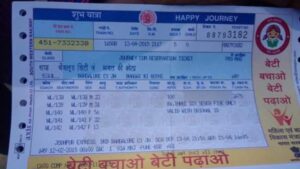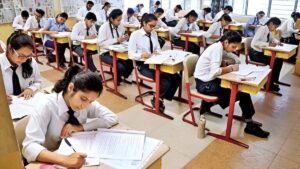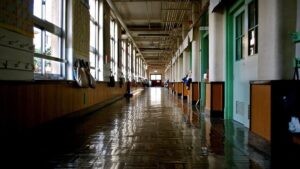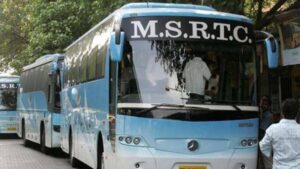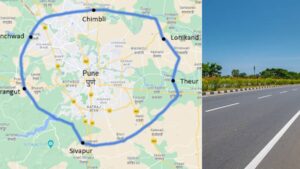Hat-trick for ISRO in RLV LEX: Video | ISRO moves closer to India’s space-shuttle program
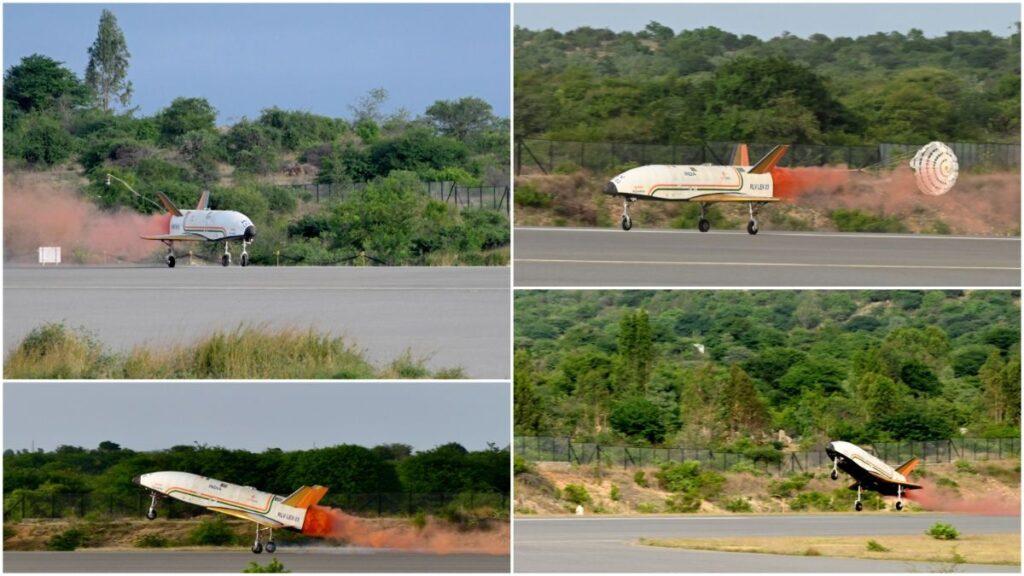
June 23, 2024
ISRO achieved a remarkable feat today with its third consecutive success in the Reusable Launch Vehicle (RLV) Landing EXperiment (LEX). The final test in the series, known as LEX-03, took place at 07:10 IST at the Aeronautical Test Range (ATR) in Chitradurga, Karnataka.
A space shuttle may be technically referred to as a Reusable Launch Vehicle (RLV).
Pushpak’s Precise Horizontal Landing
The winged vehicle, named “Pushpak,” showcased advanced autonomous capabilities under challenging conditions. Released from an Indian Air Force Chinook Helicopter at an altitude of 4.5 km, Pushpak autonomously executed cross-range correction manoeuvres, approached the runway, and performed a precise horizontal landing at the runway centerline. Despite its low lift-to-drag ratio aerodynamic configuration, Pushpak’s landing velocity exceeded 320 kmph, demonstrating its advanced technology.
Key Achievements of RLV LEX-03
- Challenging Conditions: The mission demonstrated autonomous landing capabilities under more challenging release conditions, including a cross range of 500 m, compared to 150 m for LEX-02, and more severe wind conditions.
- Technological Validation: The mission validated advanced guidance algorithms for longitudinal and lateral plane error corrections, essential for future Orbital Re-entry Missions.
- Multisensor Fusion: RLV-LEX-03 used multisensor fusion including sensors like Inertial sensor, Radar altimeter, Flush air data system, Pseudolite system and NavIC.
- Reuse of Flight Systems: The mission reused the winged body and flight systems without any modification from the LEX-02 mission, demonstrating ISRO’s capability to reuse flight systems for multiple missions.
Collaborative Effort
The success of RLV LEX-03 was the result of a collaborative effort involving multiple ISRO centers, including SAC, ISTRAC, SDSC-SHAR, and IISU, with significant support from the Indian Air Force (IAF), Aeronautical Development Establishment (ADE), Aerial Delivery Research and Development Establishment (ADRDE), Regional Centre for Military Airworthiness (RCMA) under Centre for Military Airworthiness and Certification (CEMILAC), National Aerospace Laboratories (NAL), Indian Institute of Technology, Kanpur, Indian aerospace industrial partners, Indian Oil Corporation of India, and Airport Authority of India.
Congratulations and Future Endeavors
S Somanath, Chairman, ISRO/Secretary, Department of Space, congratulated the team for their efforts in maintaining the success streak in such complex missions. Dr. S Unnikrishnan Nair, Director of VSSC, emphasized that this consistent success boosts ISRO’s confidence in the critical technologies essential for future orbital re-entry missions.
J Muthupandian served as the Mission Director, and B Karthik was the Vehicle Director for this successful mission.
With the completion of the RLV LEX objectives, ISRO now sets its sights on the RLV-ORV, the orbital reusable vehicle, marking a significant milestone in India’s space exploration journey.
